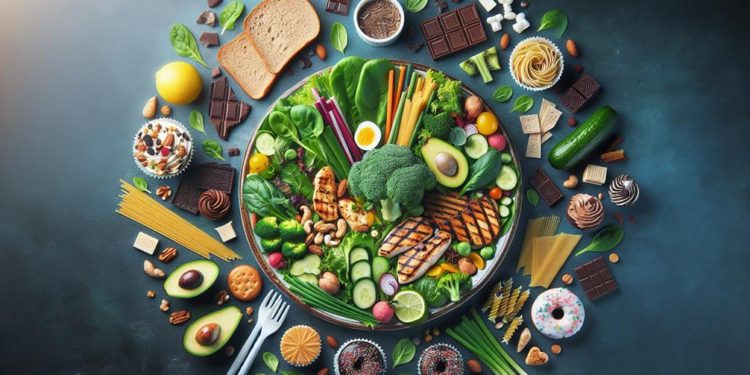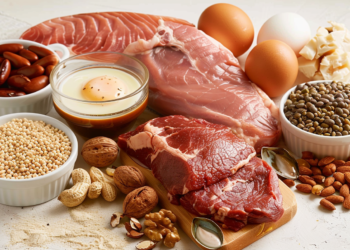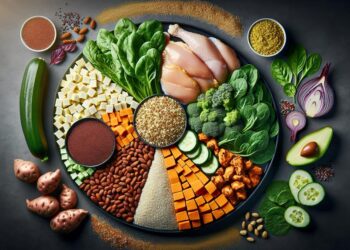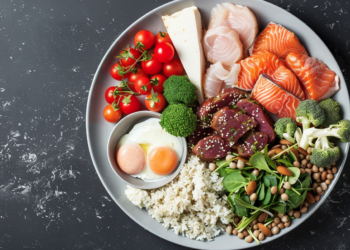When it comes to maintaining a healthy lifestyle, you may find yourself seeking ways to make adjustments to your eating habits. And let's face it, we all know that cutting back on certain food groups can be quite the challenge. But fear not, because there are effective strategies to help you reduce your carbohydrate intake without feeling deprived or overwhelmed. So, if you're ready to discover the secrets to successfully implementing low-carb diet plans, then keep on reading. You won't want to miss out on these game-changing strategies that will have you feeling your best in no time.
Key Takeaways
- Consuming carbohydrates raises blood sugar levels and triggers insulin release, so reducing carbohydrate intake can help stabilize blood sugar levels and reduce excessive insulin production.
- When choosing low-carb foods, opt for whole, unprocessed options like vegetables, lean meats, seafood, eggs, and dairy products. Avoid processed foods marketed as low-carb, as they often contain unhealthy additives.
- Plan and prepare meals in advance to stay on track with a low-carb diet. Aim for a balance of protein and low-carb vegetables in each meal, and make meal prepping easier by planning meals for the week, creating a grocery list, and preparing meals in bulk.
- Incorporate exercise into your low-carb diet plan for optimal results. Find a balance of exercise intensity that works for you, aim for a certain amount of weekly exercise, incorporate strength training, and listen to your body to avoid overexertion.
Understanding Carbohydrates
To better understand the role of carbohydrates in your low-carb diet plan, it is important to grasp their impact on your body's energy levels and overall health. Carbohydrate digestion is a complex process that starts in your mouth with the breakdown of starches into simpler sugars by enzymes in your saliva. Once in your stomach, carbohydrates continue to be broken down by enzymes, releasing more sugars. These sugars are then absorbed into your bloodstream and transported to your cells, where they provide energy for various bodily functions.
The impact of carbohydrates on blood sugar levels is crucial to consider when following a low-carb diet. When you consume carbohydrates, they are converted into glucose, which raises your blood sugar levels. This triggers the release of insulin, a hormone that helps regulate blood sugar levels. However, when you reduce your carbohydrate intake, your blood sugar levels remain more stable, reducing the need for excessive insulin production.
Choosing the Right Low-Carb Foods
Understanding the impact of carbohydrates on your body's energy levels and blood sugar levels, you can now make informed choices when it comes to selecting the right low-carb foods for your diet plan. By opting for foods that are low in carbohydrates, you can effectively reduce your overall carb intake and maintain a healthy lifestyle. Here are three options to consider:
- Incorporate ketogenic recipes: The ketogenic diet focuses on consuming high amounts of healthy fats, moderate protein, and very low carbohydrates. This diet aims to put your body into a state of ketosis, where it burns fat for fuel instead of carbohydrates. Look for recipes that include ingredients like avocados, nuts, seeds, and fatty cuts of meat.
- Opt for low-carb snacks: Snacking is a common downfall when following a low-carb diet. However, there are plenty of low-carb snack options available. Choose snacks that are high in protein and healthy fats, such as hard-boiled eggs, cheese sticks, beef jerky, or a handful of nuts. These snacks will keep you feeling satisfied and help curb cravings.
- Focus on whole, unprocessed foods: When selecting low-carb foods, prioritize whole, unprocessed options. This includes vegetables, lean meats, seafood, eggs, and dairy products. These foods are not only low in carbohydrates but also rich in essential nutrients. Avoid processed foods that are marketed as low-carb, as they often contain unhealthy additives and artificial ingredients.
Meal Planning and Prepping

Start by planning and preparing your meals in advance to ensure you stay on track with your low-carb diet. Meal prepping can save you time and help you make healthier choices throughout the week. Here is a simple table to guide you in your meal planning and grocery shopping:
| Meal | Protein Sources | Low-Carb Vegetables |
|---|---|---|
| Breakfast | Eggs, Greek yogurt | Spinach, broccoli |
| Lunch | Grilled chicken, tuna | Cauliflower, zucchini |
| Dinner | Salmon, lean beef | Asparagus, bell peppers |
When meal prepping, aim for a balance of protein and low-carb vegetables in each meal. Protein sources like eggs, Greek yogurt, grilled chicken, tuna, salmon, and lean beef provide essential nutrients while keeping you full. Low-carb vegetables such as spinach, broccoli, cauliflower, zucchini, asparagus, and bell peppers add fiber and vitamins to your diet.
To make meal prepping easier, plan your meals for the week and create a grocery list based on the ingredients you need. This way, you can avoid impulse purchases and stick to your low-carb diet. Set aside a specific time each week to prepare your meals in bulk, portion them out into containers, and store them in the refrigerator. This will save you time during busy weekdays and help you make healthier choices consistently.
Managing Cravings and Hunger
Managing cravings and hunger can be challenging when following a low-carb diet. However, with the right strategies, you can effectively navigate these obstacles and stay on track with your dietary goals. Here are three evidence-based tips to help you manage cravings and hunger while following a low-carb diet:
- Practice mindful eating: Mindful eating involves paying attention to the sensory experience of eating, such as the taste, texture, and smell of your food. By focusing on the present moment and savoring each bite, you can enhance your satisfaction and reduce cravings. Take your time, chew slowly, and listen to your body's hunger and fullness cues.
- Prioritize protein and fiber: Including ample amounts of protein and fiber in your meals can help you feel fuller for longer. Protein-rich foods like lean meats, poultry, fish, eggs, and tofu can increase satiety and reduce cravings. Similarly, fiber-rich foods like vegetables, fruits, legumes, and whole grains can add bulk to your meals, promoting feelings of fullness and reducing the desire for snacking.
- Practice portion control: While it's important to choose the right foods, it's equally important to watch your portion sizes. Even low-carb foods can contribute to weight gain if consumed in excess. Use smaller plates, measure your portions, and be mindful of serving sizes. This can help you maintain a caloric deficit and control your hunger levels throughout the day.
Incorporating Exercise for Optimal Results

To maximize the benefits of your low-carb diet, incorporating regular exercise is key. Not only does exercise help with weight loss, but it also improves overall health and well-being. When it comes to exercise intensity, it's important to find a balance that works for you. High-intensity exercises, such as interval training or circuit training, can be effective for burning calories and boosting metabolism. However, if you're just starting out or have any underlying health conditions, it's best to start with moderate-intensity exercises like brisk walking or cycling. As for workout frequency, aim for at least 150 minutes of moderate-intensity exercise or 75 minutes of vigorous-intensity exercise per week, spread out over several days. It's also beneficial to incorporate strength training exercises at least twice a week to build muscle and increase your metabolic rate. Remember to listen to your body and give yourself enough time to rest and recover between workouts. By combining a low-carb diet with regular exercise, you'll be able to achieve optimal results and improve your overall health.
Frequently Asked Questions
Can a Low-Carb Diet Lead to Nutrient Deficiencies?
A low-carb diet can potentially lead to nutrient deficiencies if not properly planned. However, incorporating exercise and focusing on nutrient-dense foods can help mitigate this risk. Furthermore, research suggests that a low-carb diet may have positive effects on brain health.
How Long Does It Take to See Results on a Low-Carb Diet?
Cutting carbs can lead to quick results on a low-carb diet. Stay motivated by focusing on the benefits like weight loss and increased energy. Remember, Rome wasn't built in a day, but with dedication, you'll see progress soon.
Are There Any Potential Side Effects of Cutting Carbohydrates?
Cutting carbohydrates can have potential health risks and long-term effects. It's important to be aware of these risks, such as nutrient deficiencies and increased heart disease risk, when following a low-carb diet.
Can I Still Enjoy Social Events and Dining Out While Following a Low-Carb Diet?
You can still enjoy social events and dining out while following a low-carb diet. There may be some challenges, but many restaurants offer low-carb options, making it easier to stick to your diet.
Is It Necessary to Count Calories on a Low-Carb Diet?
Counting calories on a low-carb diet is not necessary but can be helpful for weight loss progress. While focusing on cutting carbs, being mindful of overall calorie intake can ensure you're in a calorie deficit.
Conclusion
In conclusion, by understanding carbohydrates and making conscious choices about low-carb foods, meal planning and prepping, managing cravings and hunger, and incorporating exercise, you can effectively cut carbohydrates from your diet. This will not only lead to optimal results but also provide long-term health benefits. So, don't wait any longer, kickstart your low-carb journey today and say goodbye to carb-induced guilt. Remember, with the right strategies, you can achieve your goals and become a healthier, happier you.













